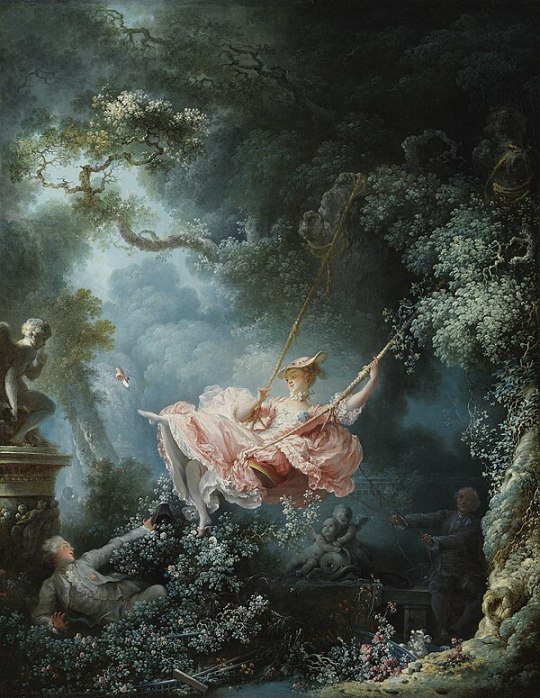#Jean-Baptiste Courtier
Photo

54 notes
·
View notes
Photo




olivia weile ottosen for madame figaro ⋅ ph. jean-baptiste courtier
#olivia weile ottosen#madame figaro#jean-baptiste courtier#model#fashion#editorial#fashion editorial#fashion magazine#magazine#fashion photography#photo#photograph#photography#photographer#supermodel#beauty#ring#rings#luxury#glamour#bath#jewelry#jewellery#gold#silver#diamond#diamonds#ornate#detail#details
11 notes
·
View notes
Text



Tsubasa by Jean-Baptiste Courtier for Numero Netherlands Magazine September 2023
217 notes
·
View notes
Text
Bernadotte & Sweden

"In 1810 Bernadotte was about to enter a new post as governor of Rome when he was unexpectedly approached by a Swedish courtier who offered him the succession to the Swedish crown. In august the same year, Jean Baptiste was elected by the Riksdag of the Estates to be the new Crown Prince. He was adopted by King Charles XIII under the name of "Charles John" (Karl Johan).
In 1814 Sweden and Norway became the United Kingdoms of Sweden and Norway. When King Charles XIII of Sweden died 1818, the Crown Prince was crowned King, first in Stockholm as King Charles XIV John av Sverige and then in Trondheim as King Charles III John of Norway. His motto as a King were: The love of the people - my reward.
During his long reign of 26 years, the national debt was paid off, a civil and a penal code were proposed for promulgation, education was promoted, agriculture, commerce, and manufactures prospered, and the means of domestic communication were improved. It is said that it was during his reign the origin of Swedish neutrality were born."
(“Jean Baptiste (Bernadotte) Av Sverige (1763-1844) | WikiTree FREE Family Tree.” Www.wikitree.com, www.wikitree.com/wiki/Bernadotte-10.)
#Marshal Bernadotte#maréchal Bernadotte#Jean-Baptiste Bernadotte#Bernadotte#Karl XIV Johan#Karl XIV Johan of Sweden#Napoleon's Marshals#Napoleonic Wars#Napoleonic Era
14 notes
·
View notes
Text
It’s Clara! (probably) 🦏



Jean-Baptiste Baillon, clockmaker (French, d. ca. 1770)
Attributed to Jean-Joseph de Saint-Germain,
bronze maker (French, 1719-1791)
Mantel Clock, after 1749
Virginia Museum of Fine Arts display
“This mantel clock exemplifies the exuberant Rococo style of the mid-18th century that delighted in the apparent novelty and exoticism of Asian cultures as they were perceived in the popular European imagination.
Ménagerie clocks featuring models of unfamiliar beasts from Africa and Asia became highly fashionable collectibles in the 1740s. Though the rhinoceros was known in Europe as early as the 16th century, it was not until a live Indian rhinoceros named Clara was brought to the Netherlands in 1741 that the animal became a widely recognized marvel. Clara was exhibited throughout Europe for nineteen years, delighting average citizens and courtiers alike. In 1749, she arrived in Paris, where she inspired drawings by many artists and studies by scientists. The model for this clock was likely based on one of these renderings.”
#animals in art#european art#museum visit#rhino#rhinoceros#Indian rhinoceros#French art#18th century art#clock#bronze#sculpture#decorative arts#metalwork#Clara the Rhinoceros#VMFA#Virginia Museum of Fine Arts
22 notes
·
View notes
Text

Captured by Jean-Baptiste Courtier for Madame Figaro
#old céline#céline#old celine#madame figaro#fashion photography#fashion editorial#editorial#fashion magazine#minimal fashion#fashion#style
31 notes
·
View notes
Text
Jean-Baptiste Courtier 2022
3 notes
·
View notes
Photo

Olivia Ottosen for Madame Figaro, April 2022.
Ph.: Jean-Baptiste Courtier.
13 notes
·
View notes
Text
Colbert vs Louvois
Though he was valued by the king, who saw it as both a duty and a necessity to help mould the young man only three years younger than himself, Louvois was politically vulnerable, in part because of a cocksure attitude which stayed with him all his life. Louis apparently had to rebuke Louvois from time to time for his pride and arrogance, even for cheek to the royal person. Louvois's excessive self-confidence and great diligence spawned a corresponding suspicion on the part of Jean-Baptiste Colbert. In the late 1660s Colbert was engaged upon the humbling or removal of ministerial rivals, and he seems to have been set on destroying Louvois as a potential rival as quickly as possible: in July 1666, as the government prepared for war, Colbert launched a savage attack on Louvois in a letter to the king, accusing the young War Minister of ruining France through his arrogance and inexperience. Louis, however, does not appear to have acted upon this vitriolic denunciation, possibly because leading courtiers were making sure the king knew exactly what both ministers were like during these years. When the brief War of Devolution (1667-68) yielded territorial fruit, Colbert seems to have realised that it would not be so easy a task to remove Louvois as it had been to oust Fouquet and Du Plessis-Guénégaud. They consequently settled into an essentially polite, but cold and chary relationship.
Guy Rowlands - The Dynastic State and the Army under Louis XIV: Royal Service and Private Interest, 1661-1701
#xvii#guy rowlands#the dynastic state and the army under louis xiv: royal service and private interest 1661 1701#jean baptiste colbert#françois michel le tellier marquis de louvois#louis xiv#war of devolution
4 notes
·
View notes
Photo

35 notes
·
View notes
Text
Events 1.1
153 BC – For the first time, Roman consuls begin their year in office on January 1.
45 BC – The Julian calendar takes effect as the civil calendar of the Roman Empire, establishing January 1 as the new date of the new year.
42 BC – The Roman Senate posthumously deifies Julius Caesar.
193 – The Senate chooses Pertinax against his will to succeed Commodus as Roman emperor.
404 – Saint Telemachus tries to stop a gladiatorial fight in a Roman amphitheatre, and is stoned to death by the crowd. This act impresses the Christian Emperor Honorius, who issues a historic ban on gladiatorial fights.
417 – Emperor Honorius forces Galla Placidia into marriage to Constantius, his famous general (magister militum) (probable).
1001 – Grand Prince Stephen I of Hungary is named the first King of Hungary by Pope Sylvester II (probable).
1068 – Romanos IV Diogenes marries Eudokia Makrembolitissa and is crowned Byzantine Emperor.
1259 – Michael VIII Palaiologos is proclaimed co-emperor of the Empire of Nicaea with his ward John IV Laskaris.
1438 – Albert II of Habsburg is crowned King of Hungary.
1500 – Portuguese explorer Pedro Álvares Cabral discovers the coast of Brazil.
1502 – The present-day location of Rio de Janeiro, Brazil, is first explored by the Portuguese.
1515 – Twenty-year-old Francis, Duke of Brittany, succeeds to the French throne following the death of his father-in-law, Louis XII.
1527 – Croatian nobles elect Ferdinand I, Archduke of Austria as King of Croatia in the 1527 election in Cetin.
1600 – Scotland recognises January 1 as the start of the year, instead of March 25.
1604 – The Masque of Indian and China Knights is performed by courtiers of James VI and I at Hampton Court.
1651 – Charles II is crowned King of Scotland at Scone Palace.
1700 – Russia begins using the Anno Domini era instead of the Anno Mundi era of the Byzantine Empire.
1707 – John V is proclaimed King of Portugal and the Algarves in Lisbon.
1739 – Bouvet Island, the world's remotest island, is discovered by French explorer Jean-Baptiste Charles Bouvet de Lozier.
1772 – The first traveler's cheques, which could be used in 90 European cities, are issued by the London Credit Exchange Company.
1773 – The hymn that became known as "Amazing Grace", then titled "1 Chronicles 17:16–17", is first used to accompany a sermon led by John Newton in the town of Olney, Buckinghamshire, England.
1776 – American Revolutionary War: Norfolk, Virginia is burned by combined Royal Navy and Continental Army action.
1776 – General George Washington hoists the first United States flag, the Grand Union Flag, at Prospect Hill.
1781 – American Revolutionary War: One thousand five hundred soldiers of the 6th Pennsylvania Regiment under General Anthony Wayne's command rebel against the Continental Army's winter camp in Morristown, New Jersey in the Pennsylvania Line Mutiny of 1781.
1788 – The first edition of The Times of London, previously The Daily Universal Register, is published.
1801 – The legislative union of Kingdom of Great Britain and Kingdom of Ireland is completed, and the United Kingdom of Great Britain and Ireland is proclaimed.
1801 – Ceres, the largest and first known object in the Asteroid belt, is discovered by Giuseppe Piazzi.
1804 – French rule ends in Haiti. Haiti becomes the first black-majority republic and second independent country in North America after the United States.
1806 – The French Republican Calendar is abolished.
1808 – The United States bans the importation of slaves.
1810 – Major-General Lachlan Macquarie officially becomes Governor of New South Wales.
1822 – The Greek Constitution of 1822 is adopted by the First National Assembly at Epidaurus.
1834 – Most of Germany forms the Zollverein customs union, the first such union between sovereign states.
1847 – The world's first "Mercy" Hospital is founded in Pittsburgh, United States, by a group of Sisters of Mercy from Ireland; the name will go on to grace over 30 major hospitals throughout the world.
1860 – The first Polish stamp is issued, replacing the Russian stamps previously in use.
1861 – Liberal forces supporting Benito Juárez enter Mexico City.
1863 – American Civil War: The Emancipation Proclamation takes effect in Confederate territory.
1877 – Queen Victoria of the United Kingdom is proclaimed Empress of India.
1885 – Twenty-five nations adopt Sandford Fleming's proposal for standard time (and also, time zones).
1890 – Eritrea is consolidated into a colony by the Italian government.
1892 – Ellis Island begins processing immigrants into the United States.
1898 – New York, New York annexes land from surrounding counties, creating the City of Greater New York. The four initial boroughs, Manhattan, Brooklyn, Queens, and The Bronx, are joined on January 25 by Staten Island to create the modern city of five boroughs.
1899 – Spanish rule ends in Cuba.
1900 – Nigeria becomes British protectorate with Frederick Lugard as high commissioner.
1901 – The Southern Nigeria Protectorate is established within the British Empire.
1901 – The British colonies of New South Wales, Queensland, Victoria, South Australia, Tasmania, and Western Australia federate as the Commonwealth of Australia; Edmund Barton is appointed the first Prime Minister.
1902 – The first American college football bowl game, the Rose Bowl between Michigan and Stanford, is held in Pasadena, California.
1910 – Captain David Beatty is promoted to Rear admiral, and becomes the youngest admiral in the Royal Navy (except for Royal family members) since Horatio Nelson.
1912 – The Republic of China is established.
1914 – The SPT Airboat Line becomes the world's first scheduled airline to use a winged aircraft.
1923 – Britain's Railways are grouped into the Big Four: LNER, GWR, SR, and LMS.
1927 – New Mexican oil legislation goes into effect, leading to the formal outbreak of the Cristero War.
1928 – Boris Bazhanov defects through Iran. He is the only assistant of Joseph Stalin's secretariat to have defected from the Eastern Bloc.
1929 – The former municipalities of Point Grey, British Columbia and South Vancouver, British Columbia are amalgamated into Vancouver.
1932 – The United States Post Office Department issues a set of 12 stamps commemorating the 200th anniversary of George Washington's birth.
1934 – Alcatraz Island in San Francisco Bay becomes a United States federal prison.
1934 – A "Law for the Prevention of Genetically Diseased Offspring" comes into effect in Nazi Germany.
1942 – The Declaration by United Nations is signed by twenty-six nations.
1945 – World War II: The German Luftwaffe launches Operation Bodenplatte, a massive, but failed, attempt to knock out Allied air power in northern Europe in a single blow.
1947 – Cold War: The American and British occupation zones in Allied-occupied Germany, after World War II, merge to form the Bizone, which later (with the French zone) became part of West Germany.
1947 – The Canadian Citizenship Act 1946 comes into effect, converting British subjects into Canadian citizens. Prime Minister William Lyon Mackenzie King becomes the first Canadian citizen.
1948 – The British railway network is nationalized to form British Railways
1949 – United Nations cease-fire takes effect in Kashmir from one minute before midnight. War between India and Pakistan stops accordingly.
1956 – Sudan achieves independence from Egypt and the United Kingdom.
1957 – George Town, Penang, is made a city by a royal charter of Queen Elizabeth II of the United Kingdom.
1957 – Lèse majesté in Thailand is strengthened to include "insult" and changed to a crime against national security, after the Thai criminal code of 1956 went into effect.
1958 – The European Economic Community is established.
1959 – Cuban Revolution: Fulgencio Batista, dictator of Cuba, is overthrown by Fidel Castro's forces.
1960 – Cameroon achieves independence from France and the United Kingdom.
1962 – Western Samoa achieves independence from New Zealand; its name is changed to the Independent State of Western Samoa.
1964 – The Federation of Rhodesia and Nyasaland is divided into the independent republics of Zambia and Malawi, and the British-controlled Rhodesia.
1965 – The People's Democratic Party of Afghanistan is founded in Kabul, Afghanistan.
1970 – The defined beginning of Unix time, at 00:00:00.
1971 – Cigarette advertisements are banned on American television.
1973 – Denmark, Ireland and the United Kingdom are admitted into the European Economic Community.
1976 – A bomb explodes on board Middle East Airlines Flight 438 over Qaisumah, Saudi Arabia, killing all 81 people on board.
1978 – Air India Flight 855, a Boeing 747, crashes into the Arabian Sea off the coast of Bombay, India, due to instrument failure, spatial disorientation, and pilot error, killing all 213 people on board.
1979 – Normal diplomatic relations are established between the People's Republic of China and the United States.
1981 – Greece is admitted into the European Community.
1982 – Peruvian Javier Pérez de Cuéllar becomes the first Latin American to hold the title of Secretary-General of the United Nations.
1983 – The ARPANET officially changes to using TCP/IP, the Internet Protocol, effectively creating the Internet.
1984 – The original American Telephone & Telegraph Company is divested of its 22 Bell System companies as a result of the settlement of the 1974 United States Department of Justice antitrust suit against AT&T.
1984 – Brunei becomes independent of the United Kingdom.
1985 – The first British mobile phone call is made by Michael Harrison to his father Sir Ernest Harrison, chairman of Vodafone.
1987 – The Isleta Pueblo tribe elect Verna Williamson to be their first female governor.
1988 – The Evangelical Lutheran Church in America comes into existence, creating the largest Lutheran denomination in the United States.
1989 – The Montreal Protocol comes into force, stopping the use of chemicals contributing to ozone depletion.
1990 – David Dinkins is sworn in as New York City's first black mayor.
1993 – Dissolution of Czechoslovakia: Czechoslovakia is divided into the Czech Republic and Slovak Republic.
1994 – The Zapatista Army of National Liberation initiates twelve days of armed conflict in the Mexican state of Chiapas.
1994 – The North American Free Trade Agreement (NAFTA) comes into effect.
1995 – The World Trade Organization comes into being.
1995 – The Draupner wave in the North Sea in Norway is detected, confirming the existence of freak waves.
1995 – Austria, Finland and Sweden join the EU.
1998 – Following a currency reform, Russia begins to circulate new rubles to stem inflation and promote confidence.
1998 – Argentinian physicist Juan Maldacena published a landmark paper initiating the study of AdS/CFT correspondence, which links string theory and quantum gravity.
1999 – Euro currency is introduced in 11 member nations of the European Union (with the exception of the United Kingdom, Denmark, Greece and Sweden; Greece adopts the euro two years later).
2004 – In a vote of confidence, General Pervez Musharraf wins 658 out of 1,170 votes in the Electoral College of Pakistan, and according to Article 41(8) of the Constitution of Pakistan, is "deemed to be elected" to the office of President until October 2007.
2007 – Bulgaria and Romania join the EU.
2007 – Adam Air Flight 574 breaks apart in mid-air and crashes near the Makassar Strait, Indonesia, killing all 102 people on board.
2009 – Sixty-six people die in a nightclub fire in Bangkok, Thailand.
2010 – A suicide car bomber detonates at a volleyball tournament in Lakki Marwat, Pakistan, killing 105 and injuring 100 more.
2011 – A bomb explodes as Coptic Christians in Alexandria, Egypt, leave a new year service, killing 23 people.
2011 – Estonia officially adopts the Euro currency and becomes the 17th Eurozone country.
2013 – At least 60 people are killed and 200 injured in a stampede after celebrations at Félix Houphouët-Boigny Stadium in Abidjan, Ivory Coast.
2015 – The Eurasian Economic Union comes into effect, creating a political and economic union between Russia, Belarus, Armenia, Kazakhstan and Kyrgyzstan.
2017 – An attack on a nightclub in Istanbul, Turkey, during New Year's celebrations, kills at least 39 people and injures more than 60 others.
2 notes
·
View notes
Photo

Ph. Jean-Baptiste Courtier / Mod. Olivia Weile Ottosen
6 notes
·
View notes
Text



Adeleye Segun by Jean Baptiste Courtier for Numéro Netherlands Magazine September 2023
61 notes
·
View notes
Text

007. "The Swing" by Jean-Baptiste-Siméon Chardin (1767)
The Swing is a oil on canvas by Jean-Baptiste-Siméon Chardin. It shows a lavishly decorated young woman on a swing with a young man hiding among the bushes below and a smiling older man almost completely hidden in the shadows on the right and is the one moving the swing with a small white dog nearby. The woman is wearing a bergere hat, which indicates wealth and status.
According to records from Charles Colle, a courtier, a person who attends a royal court as a companion or advisor to a king or queen, first asked Gabriel François Doyen to paint him and his mistress. However, Doyen was not comfortable with this frivolous work, so he refused and passed the commission to Fragonard.
While researching this artwork, I discovered this piece went under serious restoration in 2021. At the Wallace Collection in London, they made great effort to reverse the natural aging process that ruined the painting's appearance. Because of its paramount importance and fame, it has barely been removed from public display and was not cleaned for over 100 years. They actually got the severely yellow varnish off the piece, and now it is on display at the Wallace Collection in London.
First of all, I love this artwork. There is something about the richness of color and the folds of the dress that I love. I also love how the lighting points toward the woman; I know she is the centralized figure, but the light on her makes her feel almost untouchable or ethereal. It almost feels like an old Disney movie scene where the woman is always just out of reach of our protagonist; it feels familiar. I cannot describe the familiarity, but I yearn for it and hope others see it in my work.
0 notes
Text
Jean-Baptiste Courtier for Madame Figaro with Olivia Weile Ottosen
Jean-Baptiste Courtier for Madame Figaro with Olivia Weile Ottosen
Photographer: Jean-Baptiste Courtier. Fashion Stylist: Julie Gillet. Hair Stylist: Martyn Foss Calder. Makeup Artist: Tiina Rovainen. Model: Olivia Weile Ottosen.

View On WordPress
0 notes
